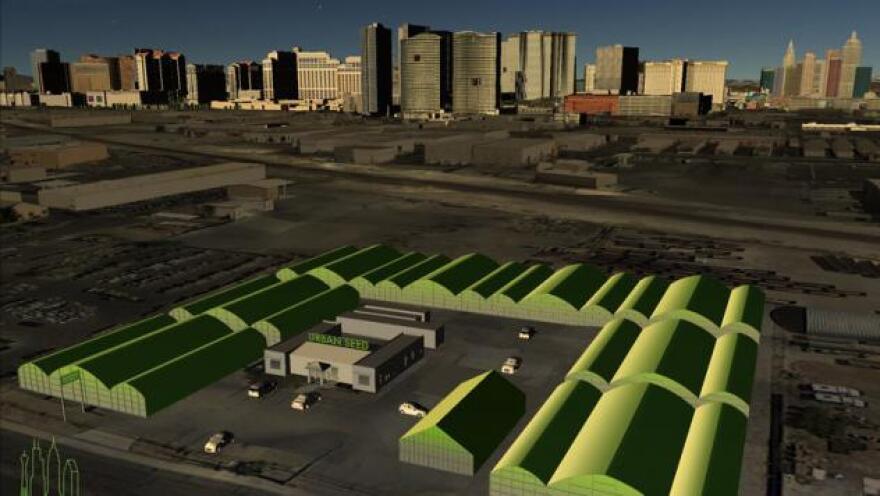Contrary to a common misperception, there is farming in the Mojave Desert, despite water scarcity, blazing heat, and rock-hard soil.
New companies here are turning in greater numbers to indoor farming. Helped in part by the explosion of indoor marijuana cultivation, Nevada is seeing greenhouse innovations that, some think, could make the dream of industrial-scale desert farming a reality.
We talked about the promises and challenges of indoor farming with Brock Leach, general manager and COO of recently opened Oasis Biotech; Rachel Wenman, co-founder and vice president of Urban Seed; and Nicola Kerslake, founder of Contain, Inc., which helps indoor farming startups find financing and also owns Indoor Ag-Con.
One the biggest hurdles of starting such an operation locally, Kerslake said, is money: “The largest challenge for new entrants (into the market) is putting together enough capital to do a new build.” Commercial builds can cost anywhere from $20,000 to $20 million, she said. In the last several years, a number of new operations have failed to launch or closed shortly after opening.
Leach said, “We’ve already deployed $30 million of capital and we’re not stopping, because there’s a big problem down the road that, if we’re not aggressive at fixing, we’re all gonna run straight into.”
That problem, according to the panelists, is the disappearance of arable land due to urban sprawl and climate change. California, which provides 80 percent of U.S. produce according to Kerslake, is under enormous stress from these and other factors.
Kerslake added that the economic tide is turning in favor of indoor farming, mainly because of the large number of technological developments that are going on in this sector — developments that are helped by marijuana legalization and its attendant investment.
Asked whether aeroponics, hydroponics and other similar operations are a responsible investment in a region that’s experiencing historic drought, Wenman noted that controlled systems like these are actually more sustainable than traditional, outdoor farming. “It allows the plant to intake exactly what it needs and (us to) use the leftover resources in a closed loop process.” Both she and Leach noted that condensation and runoff are captured and put back into the system.
They’re also not worried about the current controversy over whether indoor farming operations should qualify for organic certification, since they don’t use soil. “The local label is what we’re seeing… is important to our consumers,” Wenman said. “The Las Vegas chef community has been advocates” in educating the public about the difference.
From NPR: Farm Of The Future: What Grows In Las Vegas Stays In Las Vegas
Brock Leach, general manager and COO, Oasis Biotech; Rachel Wenman, co-founder and vice president of Urban Seed; Nicola Kerslake, founder of Contain, Inc.,










